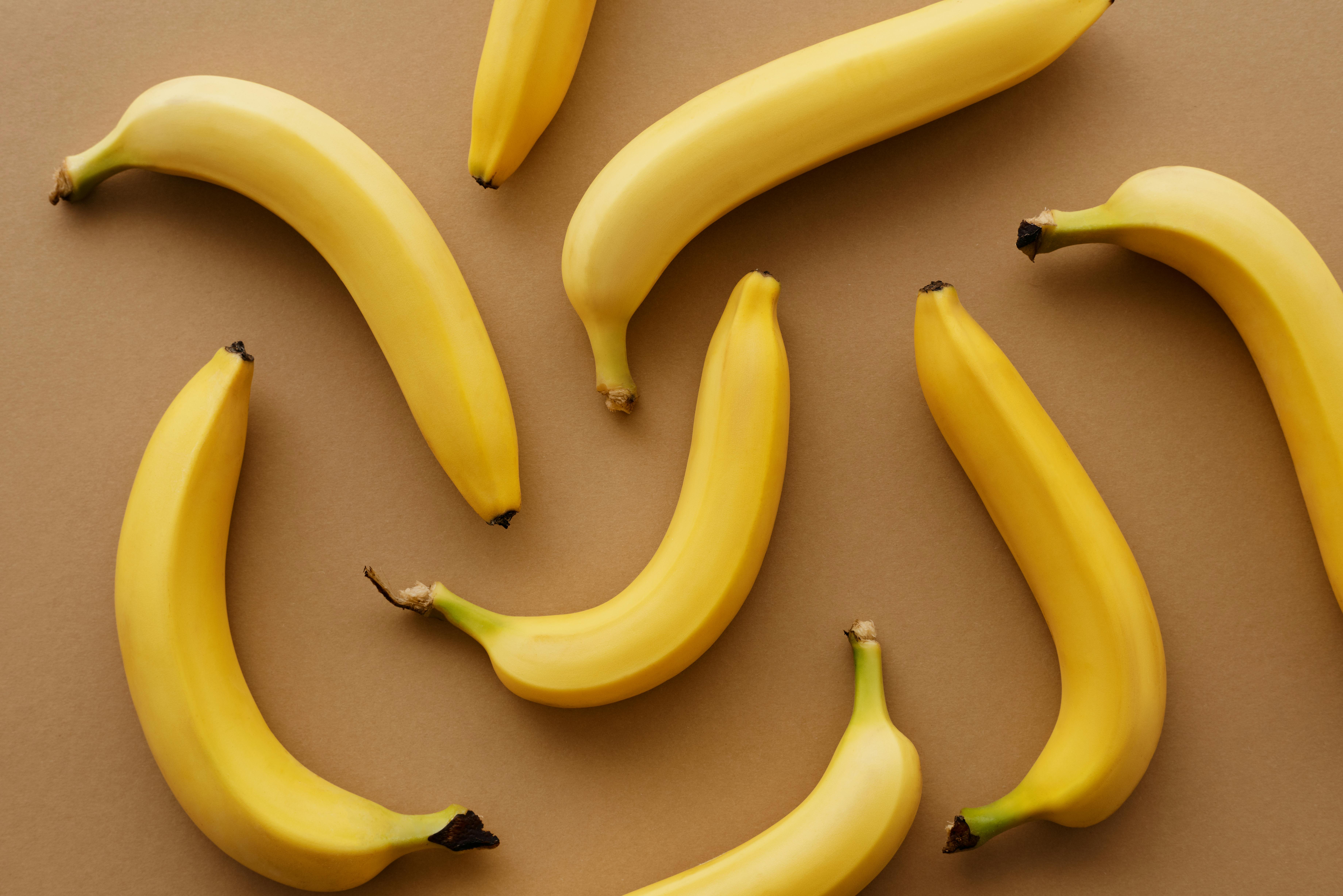A yellow fruit is a type of fruit that has a yellow-colored skin or flesh. This type of fruit is typically sweet and juicy, and it can come in many different shapes, sizes, and varieties. Many types of yellow fruits are popular for their flavor, nutrition, and versatility. They can be eaten fresh, used in recipes, or juiced for a refreshing beverage.A yellow fruit is a type of fruit that has a yellow color when ripe. Some examples of yellow fruits include lemons, bananas, pineapples, mangoes, apples, and pears.
Types of Yellow Fruits
Yellow fruits offer a wide variety of health benefits, from promoting cardiovascular health to improving digestion. Eating yellow fruits is an excellent way to get essential vitamins and minerals, as well as fiber and other nutrients. Here is a list of some of the most common types of yellow fruits:
Bananas are probably the most popular type of yellow fruit. They are packed full of potassium, manganese, fiber, vitamin C, vitamin B6, and many other nutrients. Bananas also have a low glycemic index and can help regulate blood sugar levels.
Pineapples are another type of yellow fruit that is high in vitamin C and manganese. It also contains bromelain, which can help reduce inflammation in the body. Pineapple can be enjoyed fresh or canned for a sweet treat that is sure to please any palate.
Mangoes are another type of yellow fruit that is rich in vitamins A and C, as well as potassium and fiber. They have a sweet flavor with hints of peach or apricot and can be enjoyed raw or cooked in many different dishes.
Cantaloupe is another type of yellow fruit that is high in beta-carotene and fiber. It has a sweet flavor and can be enjoyed fresh or added to salads for a nutritious snack. Cantaloupe also contains lycopene, which may help protect against certain types of cancer.
Lemons are tart but refreshing when enjoyed on their own or added to recipes for an extra zing. They contain high amounts of vitamin C along with citric acid which helps keep your body alkaline balanced. Lemons are also known for their anti-inflammatory properties which make them beneficial for those suffering from arthritis or joint pain.
Papayas are a tropical fruit that contain high amounts of beta-carotene, vitamin C, folate, dietary fiber and potassium. The fleshy sweet taste makes them perfect for adding to smoothies or eating on their own as a snack throughout the day. Papayas have been shown to help boost immunity levels as well as reduce inflammation in the body due to their antioxidant content.
These are just some examples of the many different types of yellow fruits available today for your enjoyment! All offer unique health benefits so it’s important to incorporate them into your diet when possible for optimal nutrition and wellness benefits!
The Health Benefits of Yellow Fruits
Yellow fruits offer a range of health benefits. Rich in vitamins, minerals, and antioxidants, yellow fruits can help support a healthy immune system, improve digestion, and protect against diseases like cancer. They are also packed with dietary fiber, which can help you feel fuller longer and promote weight loss. Yellow fruits can also provide energy and improve your mood. Here are some of the most popular yellow fruits and their health benefits.
Bananas are one of the most popular yellow fruits around the world. They contain an abundance of vitamins and minerals like vitamin C, potassium, magnesium, iron, and calcium. Bananas are also high in dietary fiber and can help regulate blood sugar levels. Furthermore, they contain powerful antioxidants that can reduce inflammation in the body and protect against disease.
Pineapples are another delicious yellow fruit with many health benefits. They contain bromelain, an enzyme that helps to break down proteins in the stomach and aid digestion. Pineapples also have anti-inflammatory properties that can help reduce pain associated with arthritis or other chronic conditions. Additionally, they are rich in vitamin C which helps boost immunity.
Lemons are an excellent source of vitamin C as well as folate and potassium. The citric acid present in lemons has been shown to reduce cholesterol levels and improve heart health. Lemons also act as a natural diuretic which can help flush out toxins from the body while increasing urinary flow rate.
Oranges are another type of yellow fruit that is packed with nutrients like vitamins A and C as well as fiber and magnesium. Oranges contain flavonoids which act as powerful antioxidants to protect against disease. Additionally, oranges may help lower cholesterol levels by reducing LDL cholesterol while raising HDL (good) cholesterol levels.
Mangoes are sweet yellow fruits that provide many essential vitamins and minerals including Vitamins A, C, E as well as potassium for healthy heart function. Mangoes contain powerful antioxidants like quercetin that have been linked to reducing inflammation in the body while boosting immunity against disease-causing pathogens.
Yellow fruits offer a range of health benefits from improved digestion to better heart health thanks to their rich content of essential vitamins minerals fibers antioxidants proteins enzymes fatty acids chlorophyll flavonoids anthocyanins lycopene carotenoids terpenes lignans xanthones catechins polyphenols phytosterols ellagitannins polyunsaturated fatty acids phytoestrogens sterols saponins tannins etc.. Eating a variety of these nutrient-rich foods will ensure you get all these amazing benefits from them!
Storing Yellow Fruits
Yellow fruits are some of the most delicious and nutritious fruits out there. As such, it’s important to store them properly in order to maximize their flavor and freshness. Here are some tips for storing yellow fruits:
Refrigeration is an important part of storing yellow fruits. If you can, place them in the refrigerator within two hours of picking or purchasing. This will help keep the fruit from spoiling too quickly.
When selecting yellow fruits, make sure to look for firm, unblemished specimens that are relatively free from insect damage or mold. Avoid any that have soft or dark spots, as these indicate that the fruit is past its prime.
Be sure to store yellow fruits away from strong odors and away from other produce items such as onions and garlic, as these can cause cross-contamination. Also, avoid storing near ethylene-producing fruits such as apples and bananas, as this can cause premature ripening.
Finally, make sure to store your yellow fruits at a consistent temperature. If using a refrigerator, try to maintain temperatures between 32°F (0°C) and 41°F (5°C). Storing at these temperatures will help keep your yellow fruits fresh for longer periods of time.
Nutritional Value of Yellow Fruits
Yellow fruits are a nutritional powerhouse that offer a variety of health benefits. They are full of essential vitamins and minerals, including vitamin C, beta-carotene, potassium, and magnesium. Some yellow fruits also contain phytonutrients, which are beneficial plant compounds that can help protect against disease. The most common yellow fruits include lemons, oranges, mangoes, bananas, pineapples, and papayas.
Lemons are an excellent source of vitamin C and other antioxidants that help support the immune system. They also contain citric acid and flavonoids that can help reduce inflammation in the body. Oranges are rich in antioxidants such as vitamin C and beta-carotene. They also contain fiber to aid digestion and potassium to help maintain healthy blood pressure levels.
Mangoes are a great source of beta-carotene and vitamins A and C. They also contain fiber to aid digestion and potassium to help regulate heart rate and blood pressure levels. Bananas are rich in potassium as well as fiber for digestion. They also provide some magnesium which helps to relax muscles. Pineapples are rich in vitamin C and bromelain which is thought to have anti-inflammatory properties.
Papayas have high levels of vitamin C as well as carotenoids which may reduce inflammation in the body. Papayas also contain folate which helps the body create new cells for growth and development. All of these yellow fruits offer a wide variety of health benefits ranging from improving digestion to helping reduce inflammation in the body. Eating a variety of yellow fruits regularly is an excellent way to get essential vitamins and minerals while promoting overall good health!

Delicious Recipes Using Yellow Fruits
Yellow fruits are an amazing source of nutrition and can add a vibrant touch to any meal. They are packed with vitamins and minerals, making them some of the healthiest fruits around. Whether you’re looking for a sweet treat or a savory side dish, there are plenty of delicious recipes out there that make use of yellow fruits. From mango salsa to grilled pineapple, here are some scrumptious recipes that will tantalize your taste buds.
Mango Salsa is an easy-to-make appetizer that’s perfect for any occasion. The combination of juicy mangoes, red onions, jalapeños, cilantro, and lime juice creates a flavorful mix that pairs perfectly with tortilla chips or tacos. Start by dicing two ripe mangoes and combine it with half a diced red onion, two chopped jalapeños (seeds removed), two tablespoons of chopped fresh cilantro, and the juice from one lime. Mix everything together and serve chilled.
Grilled Pineapple is another delicious way to enjoy yellow fruit. Start by preheating your grill to medium-high heat and cutting the pineapple into thick slices (about 1/2 inch thick). Brush each slice with melted butter or coconut oil and sprinkle with cinnamon or brown sugar. Grill for 3-4 minutes per side until lightly charred and serve warm with ice cream or whipped cream for dessert!
Strawberry Banana Smoothie Bowls are a deliciously satisfying breakfast option that will give you the energy you need to start your day off right! Simply blend one frozen banana, half cup frozen strawberries, one tablespoon honey, half cup almond milk, one teaspoon chia seeds until smooth then pour into bowls and top with your favorite toppings such as nuts, granola, coconut flakes or fresh fruit. Enjoy!
These recipes using yellow fruits are sure to please everyone in the family! Not only do they taste great but they’re also packed with essential vitamins and minerals that will keep you energized throughout the day. So next time you’re in the mood for something sweet or savory – give these recipes a try!
Popular Varieties of Yellow Fruits
Yellow fruits are an excellent source of nutrition and provide numerous health benefits. Many varieties of yellow fruits are available, each with its own unique flavor and texture. Some popular varieties of yellow fruits include bananas, lemons, pineapples, apricots, melons, and mangoes.
Bananas are one of the most popular yellow fruits. They are rich in potassium and fiber and have a sweet flavor. Bananas can be eaten as a snack or added to breakfast cereals or smoothies. They can also be used to make banana bread or other baked goods.
Lemons are another popular type of yellow fruit. Lemons are tart and acidic and are often used to add flavor to salads, soups, sauces, marinades, drinks, and desserts. Lemons can also be used to make lemonade or lemon meringue pie.
Pineapples are another variety of yellow fruit that is popular around the world. Pineapples have a sweet-tart flavor and can be used in desserts like pineapple upside down cake or added to smoothies for a tropical taste. Pineapple juice is also popular for its refreshing taste.
Apricots are another type of yellow fruit that is commonly eaten around the world. They have a sweet-tart flavor and can be eaten as is or added to salads or desserts for extra flavor. Apricots also make an excellent addition to jams and preserves or can be dried for snacking later on.
Melons come in many different varieties such as cantaloupe, honeydew, watermelon, muskmelon, casaba melon, Persian melon, and Crenshaw melon among others. All types of melons have a sweet flavor that makes them great for snacking on their own or adding them to smoothies or salads for extra sweetness.
Mangoes are one of the most popular varieties of yellow fruit in the world today due to their delicious taste and health benefits. Mangoes have a sweet-tart flavor that makes them perfect for baking into pies or cakes as well as adding them to salads for extra sweetness and crunchiness. Mango juice is another popular way to enjoy this delicious fruit!
How to Choose Ripe Yellow Fruits
Choosing the right fruit can be tricky, especially when you’re looking for yellow fruits that are ripe and ready to eat. Yellow fruits generally have a higher sugar content than other varieties and can be a great source of vitamins and minerals. To make sure you get the best tasting fruit, it’s important to know how to pick out ripe yellow fruits. Here are a few tips to help ensure you get the most out of your purchase.
The first thing you should do when selecting yellow fruits is to check for ripeness. Look for fruits with a bright, vibrant color that has no blemishes or discoloration. If the fruit is overly soft or has any wrinkles, it is likely overripe and should be avoided. Also, look for any signs of mold or decay on the skin which could indicate that the fruit has gone bad.
The next step is to give each fruit a gentle squeeze. Ripe yellow fruits will feel slightly firm but will still give slightly when pressed with your finger. If it feels too hard, this could mean the fruit isn’t yet ripe; if it feels overly soft, then it may be past its prime.
Finally, take a sniff of each piece of fruit before making your purchase. Ripe yellow fruits will have a sweet smell that indicates they are ready to eat. If there is no aroma or if it smells sour or off in any way, then this could mean the fruit isn’t quite ripe yet or has gone bad.
By following these tips for how to choose ripe yellow fruits, you can ensure you get the best tasting produce every time!

Conclusion
Yellow fruits are a diverse and delicious group of fruits. They are full of essential vitamins and minerals that help fuel our bodies and keep us healthy. From lemons to bananas, yellow fruits come in all shapes, sizes, and flavors. Whether you prefer tart or sweet, there is sure to be a yellow fruit you will enjoy. Eating at least one serving of yellow fruits every day can be beneficial for your health and well-being. So the next time you’re at the grocery store, pick up some yellow fruit to incorporate into your diet!
No matter which type of yellow fruit you choose, you can rest assured that it will be an excellent source of vitamins and minerals that will benefit your health. So get out there and fill up your fridge with some delicious yellow fruits!



